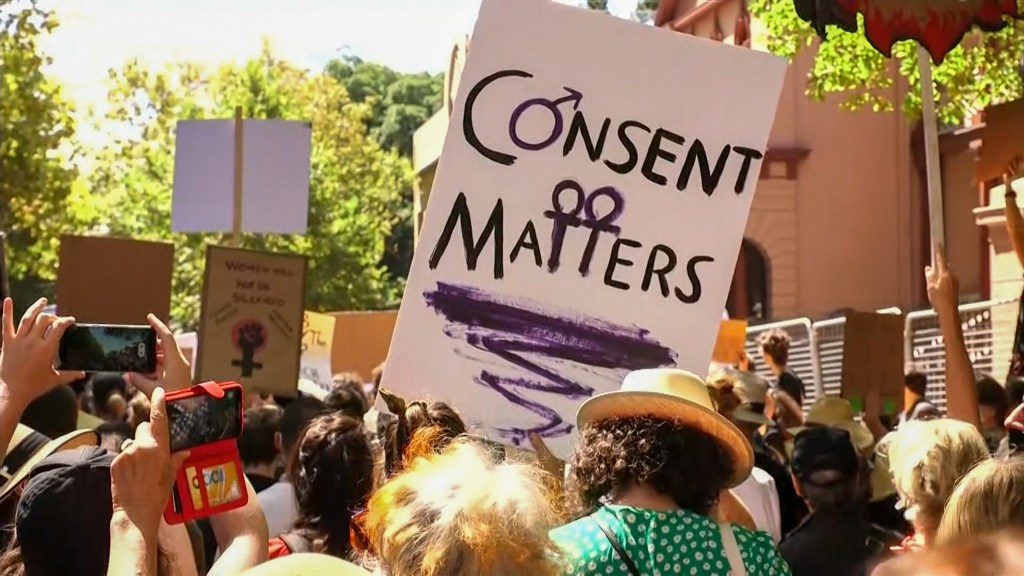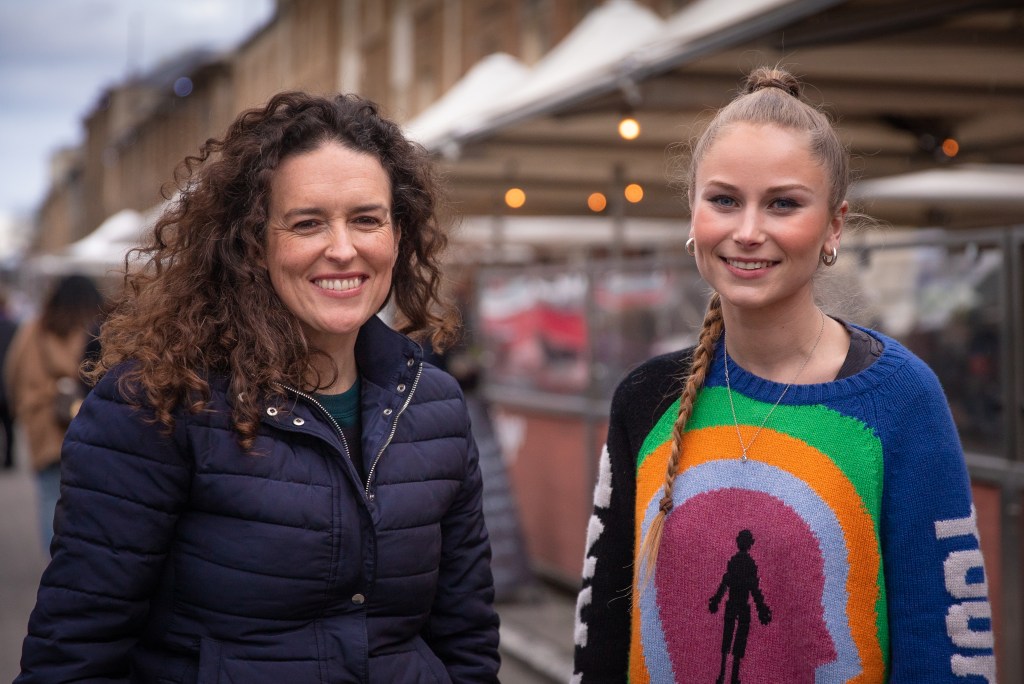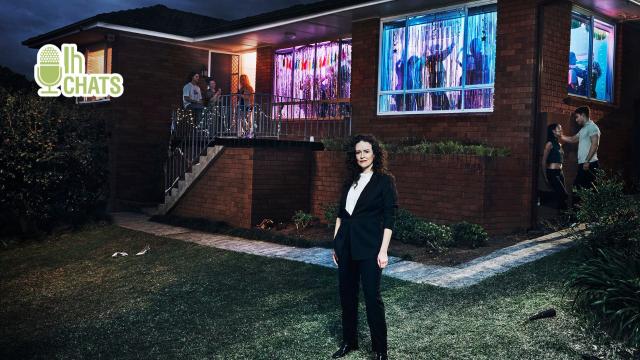Content warning: this article discusses topics of consent, sexual assault and sexual violence. Please reach out to 1800RESPECT if you ever need any help.
There’s no denying that we are in the middle of a consent revolution. In fact, the word consent has dominated public discourse in Australia since 2021. Because of the incredible bravery of survivors speaking up about their stories, we’re at a real tipping point of who gets to drive the narrative around sexual assault, which for so long was a luxury afforded only to the perpetrators.
Although the concept of consent has existed since time immemorial and we interact with it every day, we as a society have historically shied away from speaking about it. On average, there are 85 sexual assaults reported daily in Australia, according to the ABS. That number is likely a very small fraction of the total number of assaults that actually occur because it’s estimated that 90 per cent of sexual assaults go unreported.
In a new documentary series Asking For It, investigative journalist Jess Hill sets out to explore the issue of consent in Australia and the critical need for greater consent education.
The series will feature three episodes of Hill talking to advocates and the experts who are leading the charge in implementing comprehensive consent education across Australia. Hill also meets with prominent victim-survivors who have spearheaded this consent revolution in Asking For It.
To chat about the series, the need for stronger consent education, and legal reforms in Australia, Lifehacker Australia had the privilege of talking to Jess Hill and writer, director and producer of Asking For It, Tosca Looby.
Where did Asking For It come from?
There are very few documentaries that I have seen unpack and discuss consent and sexual assault in such an expansive, and inclusive, way like Asking For It does.
From investigating the importance of having greater consent education in early childhood all the way to openly discussing sexual assault and consent amongst older people, Asking For It covers it all.
It’s a pretty massive undertaking and one that is no easy feat. But it’s something that just seemed like the logical thing to do, according to Looby.
“For us, it was kind of a no-brainer, having done a three-part series on domestic abuse to then take this next step, it seemed really logical.”
“The end of 2021 going into 2022, we had this idea and at that time, it [consent and sexual assualt discussions] was in the news everywhere as it was in Parliament, it was in courts. People were increasingly disclosing their stories,” Looby explained.
“A year into making this series it [consent] continues to be very prominent and will continue to be so we sort of felt like these movements always need a bit more momentum and the series will add to that momentum.”
Why are series’ like Asking For It important?

The importance of talking openly about consent and sexual assault cannot be understated.
Having these open conservations not only encourages more survivors to speak up about their experiences but also allows for there to be greater transparency about the need for better consent education and legal reforms.
For Looby, Asking For It is important because people still don’t believe survivors when they disclose sexual assault.
“I think it’s still a problem that people don’t want to hear these stories or they don’t want to believe them. That we say, ‘Was it that serious?’ You know, ‘Is it so bad? What were you wearing?’ All those questions are still asked [and] there is still so much emphasis on the mistakes that the victim made.”
What series’ like Asking For It can achieve, then, is to make people aware of these ‘mythologies’ that we can have around who is to blame and why sexual assault happens.
“It does seem that the last thing that we arrive at is looking at the behaviour of the person who’s committed the assaults,” Looby explained.
“So, I think being conscious ourselves of our own biases and the ideas that we’ve all grown up with, to question those ideas [and to] listen to people when they tell these stories and understand the circumstances in which they happen, is going to help.”
“It’s kind of this wave effect and the more we talk about it, the more we put this conversation out there, then surely, the better we all get at listening to other stories.”
How the internet plays a dangerous role in sexual violence
It should come as no real surprise that the internet holds strong transformative powers when it comes to conversations about consent and the depiction of sexual violence.
On one hand, the internet can be a useful tool in amplifying survivors’ stories and keeping the conversation around consent going.
However, rather often, the internet plays a dangerous role in promoting and desensitising people to sexual violence.
In Asking For It, the pervasiveness of the manosphere – which enables the rise in misogynistic and sometimes violent ideologies against women – is explored.
Additionally, things like deep fake porn and the rapid speed at which graphic pornography can be spread across the internet can result in what Hill describes as a “rabbit hole experience”.
“Where you get bored with a certain type of content so you need something more extreme and then you need something more extreme and more extreme and that’s what the world of online porn has been catered to.”
“Over the last decade, we have seen the extremes come into the centre as just mainstream online, particularly heterosexual porn. So, I think there’s always a feeling with gendered violence and patriarchy when there’s always this sort of ghost in the machine that’s adapting out of sight, and by the time you realise what’s happened, it’s already massively influential,” Hill explained.
She also highlighted that, due to the fact that the internet and social media platforms are largely unregulated, teenagers are operating in landscapes that are invisible to virtually everyone but themselves; feeding them deeper into this rabbit hole.
“It’s like total open slather and I feel like we’re making massive gains in some areas, in terms of public consciousness about sexual violence, which was virtually taboo to talk about until a few years ago, [now] we’re just falling way behind in terms of the sorts of things that are freely available to kids from the ages of like eight,” Hill explained
“They [teenagers] can be watching mostly unregulated, violent porn at any time of day or night, they can be engaging with really misogynistic content that’s totally undoing all of the work that we’re trying to do out in, you know, regular offline society.”

What can be done to address this?
An interesting point Hill raised was that when parents feel out of control in regard to their children and the internet, they try to surveil their kids and put apps on their phones that track them.
“Apps that are used by stalkers to stalk their intimate partners are also used by parents to surveil their child’s activity on their phone,” she said.
“Which sounds like a safe a way to keep them safe, but actually sets up this whole dynamic, whereby it’s like, ‘Oh, well, I’m just trying to protect you by surveilling you,’ which of course is a really problematic dynamic if you take that into an intimate partner relationship because that’s at the core of coercive control,” Hill explained.
What needs to happen is to find a middle ground where there’s a balance between privacy but also regulation. For Hill, this might come in the form of community responsibility similar to television and film code regulation.
“There’s got to be somewhere where we don’t have to be watching what our kids do 24/7 and keeping tabs on their internet behaviour, but where the community takes responsibility for this like we did with television.”
“We’re not just going to sit 10-year-olds down in front of graphic horror movies and we’re not just going to allow 12-year-olds to access every type of porn imaginable,” Hill elaborated.
Getting young men involved in consent conversations
When people talk about consent, there seems to be this misconception that young men shouldn’t be, or can’t be, part of the conversation.
Statistically speaking, 97 per cent of sexual assault offenders in Australia are male. As such, it makes the most sense to involve young men in discussions about consent and sexual violence.
“There are a lot of young boys who will probably feel like they don’t have really a right to be part of that conversation that sexual assault survivors are leading. People might just think you should just sit down and shut up because you’re a young guy and it’s women’s time to talk but if you’re 14 or 15, you haven’t really had time to stand up and say anything much,” Hill explained.
“So, if you’re facing a situation where … you’re kind of being made to feel like you’re the problem, well, the manosphere to an extent might feel like a place of solace and refuge.”
It’s equally important that these conversations are led by other men. As Hill explained in episode three of Asking For It, a group of young men spoke about sex and consent with Richie Hardcore, which was the first time these boys were able to talk about these issues without being talked down to.
“That’s like for me an alarm bell going off, which is saying we’re not doing this right because no one is going to respond positively to shame, and particularly not teenage boys,” Hill said.
“There’s a way to talk about this issue so it’s not pulling your punches, but you’re still going to bring them in and make them feel like they can be part of this conversation. If you don’t, then you are just like feeding these young guys into manosphere or manosphere-adjacent communities that will make them feel like they’re part of something and that they’re important.”
As Looby pointed out to me, there were actually a lot of boys who did want to speak about sex and consent and to be involved in the conversation. The difficult part lay in getting through ‘the gate of parents and schools’ – but these boys did want to speak.
Empowering sexual assault survivors to speak up

Something that I hope Asking For It achieves is the ability to empower sexual assault survivors to speak up. Not even in public ways, but in their workplace or in their homes.
But how can we empower those around us who might be survivors? For Looby, seeing other people share their stories can start off a chain reaction for others to feel comfortable doing the same.
“The more people who speak up and the more it happens with members of your own community who you relate to, then it gives people that opportunity [to open up].”
“We’ve certainly seen it with this series; a lot of people are coming to us saying, ‘I’ve never told this story before but I heard X speaking about it and I decided that it was time for me to speak out.’ Those disclosures are becoming so much more common and have over the last sort of 18 months, which is why we say this revolution is underway,” Looby explained.
Hill echoed these sentiments, saying that the more people who can speak openly about sexual assault and consent, the less stigmatised it is.
“When things carry taboo it feels unspeakable, and that’s what sexual violence felt like for a very long time outside of certain circles. I’d say really up until #MeToo, talking about sexual violence was still almost taboo.
“A lot of people would not have imagined that sexual violence was prevalent as it was – that’s why statistics still shock people – because we’re only a few years into talking about this as a nation. But there are still many people who may have only interacted with that in a piecemeal way,” Hill explained.
“So, as Tosca said in the beginning, that’s why a series like Asking For It is really important. It’s another brick in the wall.”
Asking For It is a three-part series that premieres Thursday, April 20 at 8:30 pm on SBS and SBS On Demand.
If this article has raised any concerns for you or someone you know, please call 1800RESPECT on 1800 737 732 or visit the 1800RESPECT website. You can also call Lifeline on 13 11 14. In case of emergencies, call 000.

Leave a Reply
You must be logged in to post a comment.